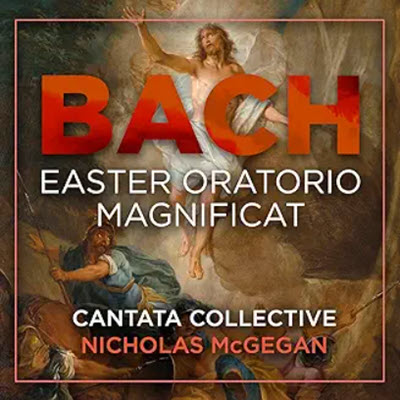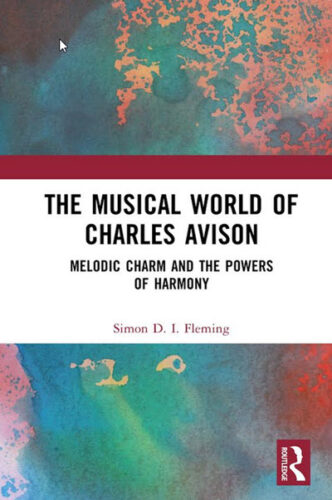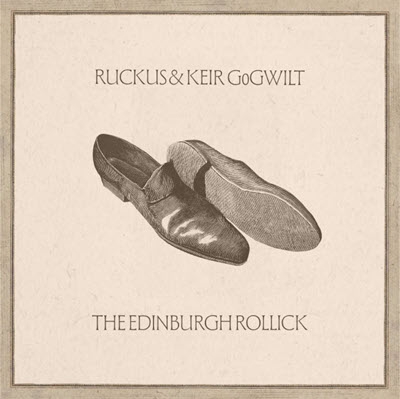by Thomas May
Published January 9, 2023
Heavenly Bach: Arias & Cantatas of J.S. Bach. Cantata BWV 51 Jauchzet Gott in allen Landen!; Cantata BWV 202 Weichet nur, betrübte Schatten; Arias: “Verfliesse, mein Herze” and “Ich folge dir gleichfalls” (from St. John Passion, BWV 245). Soprano Amanda Forsythe with Apollo’s Fire, conducted by Jeannette Sorrell. Avie 2547
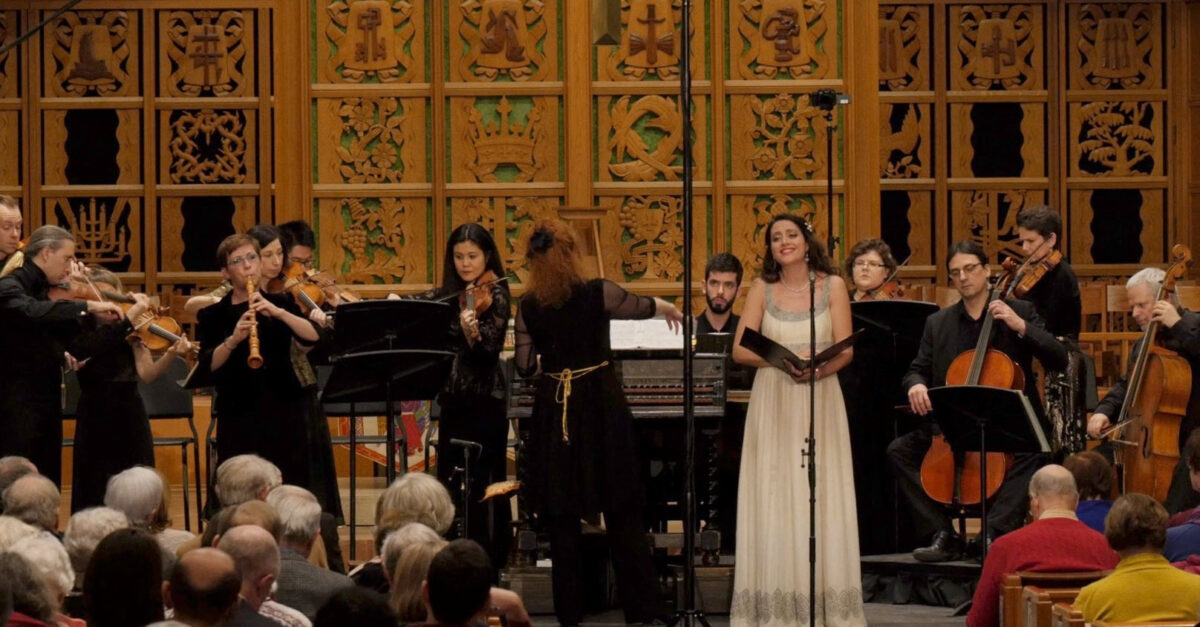
“Happiness writes white,” as the phrase goes—or, to borrow the formulation by Tolstoy that has become modernity’s default position: “Happy families are all alike; every unhappy family is unhappy in its own way.” Attempting to convey the condition of unadulterated joy in artistic terms is to risk a bland sentimentality; the bad news about the human condition is what sells. Part of J.S. Bach’s greatness lies in his ability to paint the full spectrum so convincingly, without compromise.
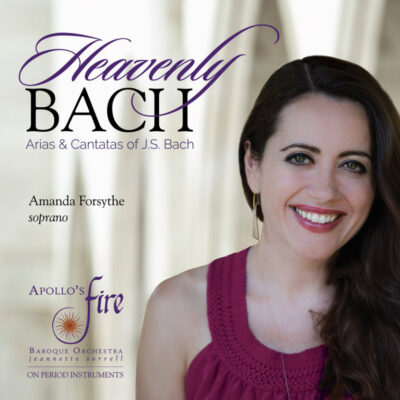
Juxtaposing two cantatas featuring solo soprano with a pair of arias from the St. John Passion, the album Heavenly Bach presents outstanding evidence of this aspect of Bach’s legacy, as viewed from a very specific angle: his love affair with the soprano voice. Jeannette Sorrell, founder and director of Apollo’s Fire, suggests a connection between Bach’s second marriage, to the professional soprano Anna Magdalena, and his attraction to the voice type in general, which, she writes, “inspired him to many of his greatest bursts of creativity throughout his career.”
The Psalm-centered Jauchzet Gott in allen Landen! (BWV 51), from Bach’s first decade in Leipzig, stands apart among the abundance of his church cantatas not only as one of the few written for soprano alone, with no other vocal soloists or chorus, but in its unique pairing of virtuoso parts for soprano and trumpet. Amanda Forsythe homes in on the connection Bach seems to suggest between thrillingly daredevil virtuosity and the depiction of joy.
She brings a radiance to her impeccable intonation in the high-lying lines of the outer movements, where Bach has her vie with the trumpet, played here by the excellent Steven Marquardt, to evoke a spirit of unbridled—and genuinely joy-filled—exaltation.
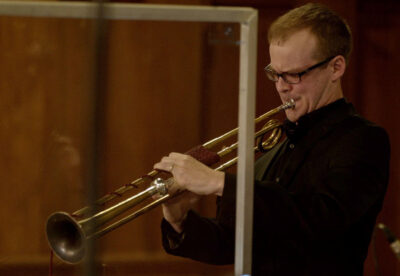
This makes the contrast of the ensuing “Zerfliesse, mein Herze” from the St. John Passion all the more striking. Here, in what happens to be the longest track on the album, Forsythe sounds the lacrimae rerum note of intimate lamentation with heart-rending directness. This is the extreme opposite of the transportive joy expressed in Jauchzet Gott in allen Landen!—the desolation that sets it off in high relief.
Forsythe crafts a deeply felt interpretation that makes you rethink the received wisdom about Bach’s treatment of the human voice as just another instrument. Indeed, one dimension of this recital is the way in which it explores the mutual effect of the soprano’s warmth and emotional power on the colors of particular instruments: trumpet in the opening cantata, flute and oboe da caccia in the “Zerfliesse” aria, oboe in Weichet nur, betrübte Schatten (BWV 202).
One of Bach’s secular wedding cantatas and possibly a product of his earlier Weimar years, Weichet nur is replete with pagan imagery of the pleasures of nature and of classical deities. It is of less consistent inspiration than the album’s other works but nevertheless showcases Forsythe’s attractively balanced middle range. Along with the oboe—almost anticipating Mozart in its melodic pungency—the cantata also offers a lovely solo turn for the violin-as-Cupid.
Sorrell directs her period-instrument ensemble with conviction and spellbinding attention to detail, eliciting the emergence of sun-filled days in the title aria of the opening and the graceful rhythmic accents of the final aria, “Sehet in Zufriedenheit.” Closing out the program is “Ich folge dir gleichfalls” from Part One of the St. John Passion—a moment of buoyant, cheerful escape from the grinding inevitability of the narrative surrounding it, where Bach has the soprano dance trippingly with a pair of flutes.
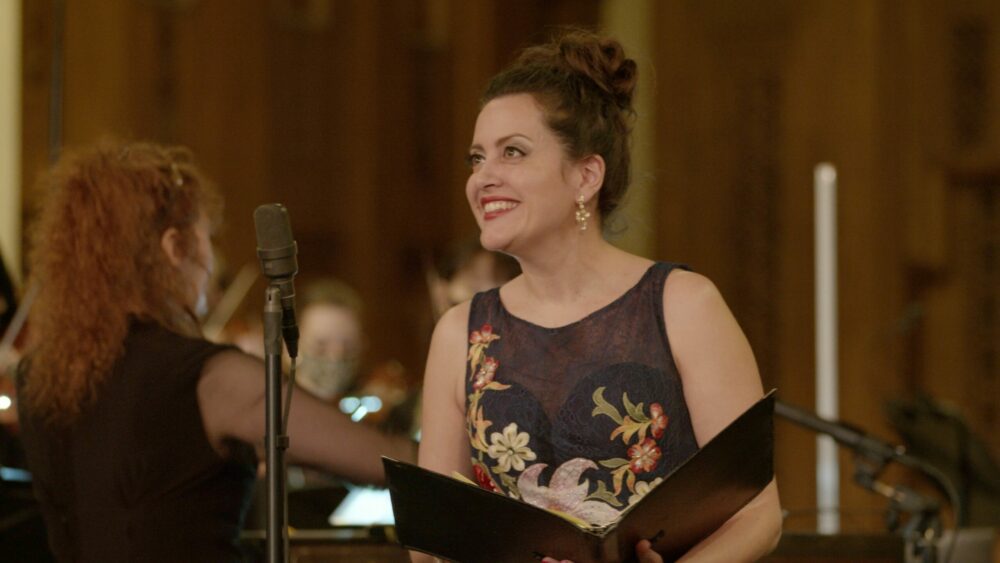
Superb breath control and nuanced dynamics allow Forsythe to shade and color her phrasing with delectable variety throughout. The sympathy between the American soprano and Apollo’s Fire is palpable. Heavenly Bach continues Forsythe’s fruitful relationship with Sorrell and the Cleveland-based ensemble, which includes her debut solo album of Handel arias and a complete St. John Passion among other recordings. The only cavil with this latest collaboration is its relative brevity: with such a winning combination, you don’t want the joy to end so soon.
Thomas May is a writer, critic, educator, and translator. He is the English-language editor for the Lucerne Festival and contributes to the New York Times, Seattle Times, Musical America, and many other publications. He also blogs about the arts at memeteria.com.

